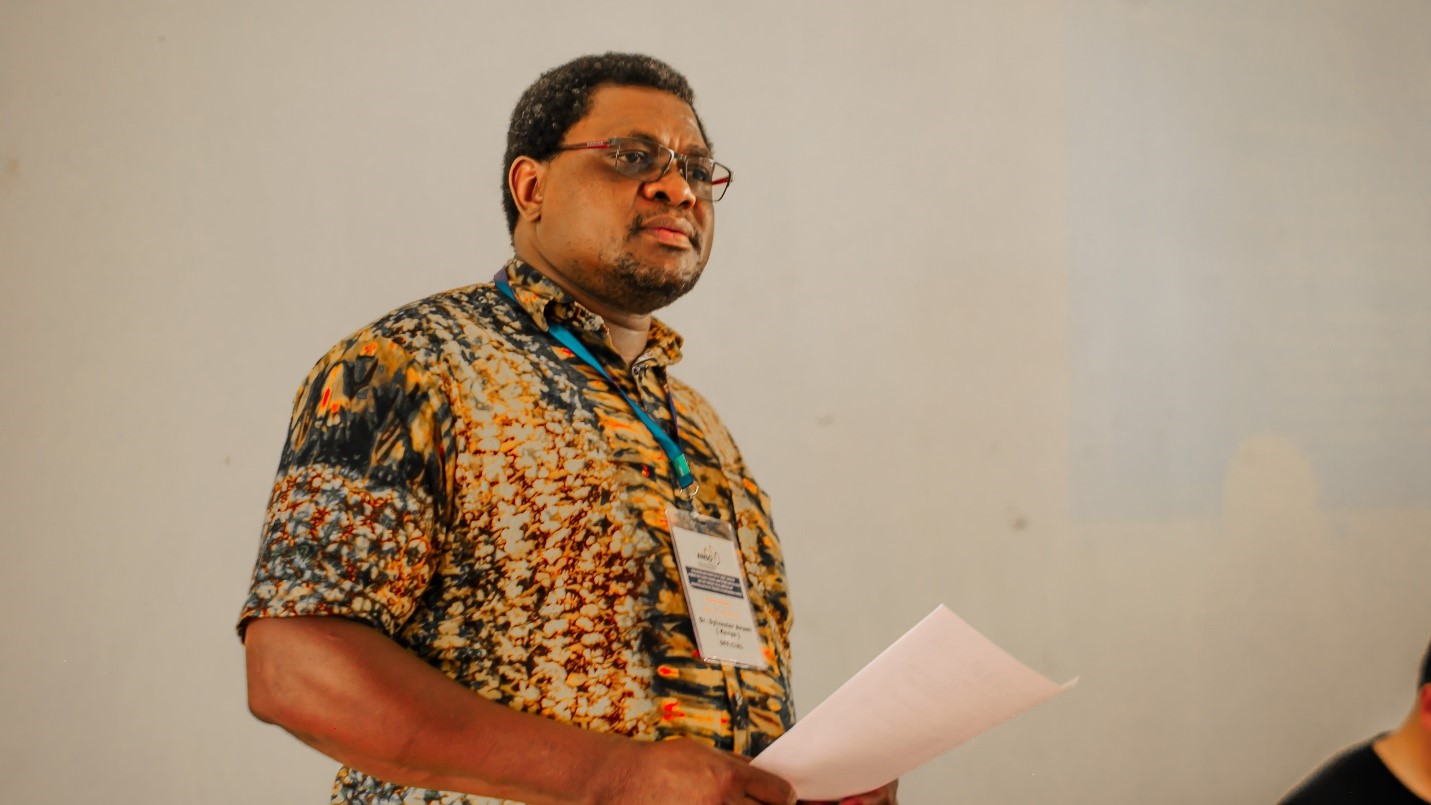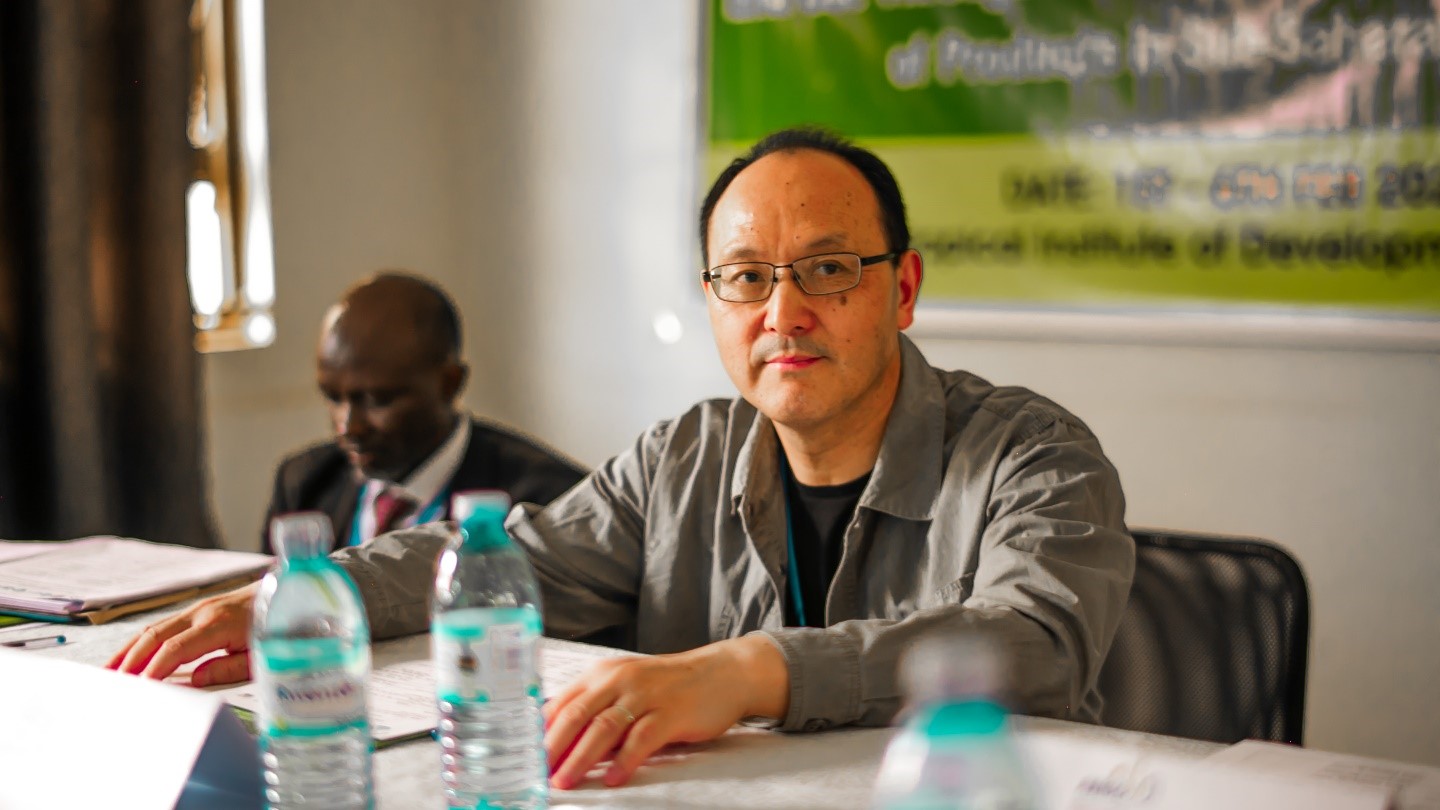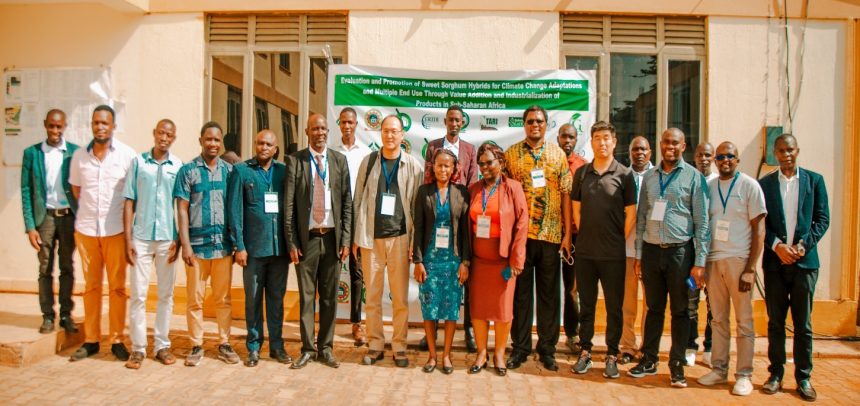A collaboration of scientists and researchers from Uganda, China, Tanzania, Kenya, and Sudan, with funding from the Alliance of National and International Science for the Belt and Road Regions (ANSO), a Chinese science organization, is implementing the “Sweet Sorghum Hybrids for Sustainable Development in Sub-Saharan Africa” project.
The project held a review and evaluation meeting on February 5-6, hosted by the Tropical Institute of Development Innovations (TRIDI), a private research, development, and academic institute that builds the capacity of individuals, communities, ministries, and governments to access and use science, technology, and innovations in exploration, production, processing, and manufacturing. TRIDI is playing a significant role in the implementation of the project.
Dr. Clet Wandui Masiga, the Executive Director of TRIDI-Uganda, indicated in his presentation that having a private sector partner in the sweet hybrid sorghum project offers several strategic advantages.
He stated, “TRIDI, with its expertise in agricultural innovation, market-driven solutions, and capacity for private sector collaboration, plays a critical role in bridging the gap between research, smallholder farmers, and the broader agricultural market.”

The project’s Principal Investigator (P.I.), Dr. Sylvester Anami from the Institute of Biotechnology Research at Jomo Kenyatta University of Agriculture and Technology (JKUAT), chaired the meeting. During his presentation, he stated that the project aims to reach 10,000 resource-poor farmers across the participating countries.
He emphasized, “The team will ensure that scientific innovations translate into practical benefits for farmers across the region.”

Prof. Dr. Abdalla Hassan Mohamed, a plant scientist specializing in sorghum breeding and genetics from the Agricultural Research Corporation (ARC) in Sudan, discussed the value addition and industrialization of hybrid sweet sorghum.
He noted that hybrid sweet sorghum presents vast economic opportunities across various sectors, such as processing sorghum into food products, establishing micro-distilleries for ethanol production, producing syrups, developing animal feed products, and creating sustainable market linkages. He emphasized that hybrid sweet sorghum could be transformed from a field crop into a multifaceted industrial resource.
He further stressed the need for strategic investments in processing infrastructure, coupled with strong partnerships between farmers, processors, and markets. Such efforts could foster a thriving sorghum value chain, contributing to food security, rural development, and climate resilience in Sub-Saharan Africa.
According to Prof. Mohamed, adopting hybrid sweet sorghum would allow farmers to increase their productivity per hectare, leading to higher income.
Hybrid varieties typically produce more grain and biomass compared to traditional sorghum varieties, which can be sold for food, animal feed, and industrial processing. In addition, hybrid sorghum’s drought resistance helps farmers avoid financial setbacks caused by crop failure due to water scarcity, which is becoming an increasing concern with climate change.
Furthermore, the provision of hybrid seeds and training on best farming practices will enable smallholder farmers to maximize their productivity and income potential. This ensures they are fully integrated into the value chain and can benefit from higher value-added products.

Prof. Dr. Abdalla Hassan Mohamed (ARC- Sudan) during presentation
Prof. Hai Chun Jing from the Institute of Botany, Chinese Academy of Sciences, who is leading the Chinese partnership in technology development and transfer, spoke about the development of hybrid sweet sorghum varieties adapted to the African climate.
He emphasized the importance of selecting and breeding high-yielding, drought-resistant varieties that can thrive in the diverse agro-ecological zones of Africa.

Prof. Hai Chun also noted the significant success of the collaboration and appreciated the efforts of all partners involved, stating, “We are building sustainable pathways for technology transfer that will benefit African institutions and generations of African farmers.”




















